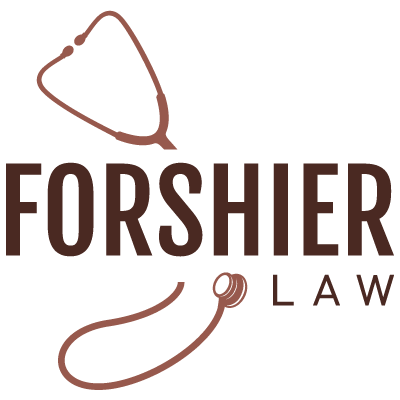Disqualification Due to Criminal Conviction or Maltreatment
Getting disqualified from working in your chosen career is a huge setback, especially if you’ve chosen to devote your career to those most in need of care. In the state of Minnesota, nurses and other caregivers can be disqualified from providing direct contact or even working in certain state-licensed facilities in another capacity due to a criminal conviction of certain crimes and/or a finding of maltreatment.
If you are a nurse, certain crimes or a finding of maltreatment may also affect your nursing licensure. License defense attorney Barb Forshier has worked with nurses and other caregivers who are faced with or have been disqualified. You may be eligible for reconsideration (non-criminal matters) or a set aside. To schedule your free phone consultation, contact Forshier Law, LLC today.
Disqualification Periods
Laws relating to disqualification are found in Minnesota Statute 245C.15. Depending on the crime or conduct that led to your disqualification, you may be disqualified:
- Permanently
- 15 years
- Ten years
- Seven years
It’s clear that being disqualified is a serious punishment that can permanently end your career. Timelines for appeal are tight. Please reach out to schedule a free phone consultation, call Forshier Law, LLC at 612-236-5261.
Disqualifying Crimes
The crime and conduct that led to your disqualification determines how long your disqualification lasts. Statute 245C.15 goes into greater detail about each level of disqualification, but you can find examples below:
- Crimes that lead to permanent disqualification: Violation of predatory offender registration law, murder, manslaughter, first- or second-degree assault, domestic assault, aggravated robbery, kidnapping, and first-degree criminal sexual conduct, in addition to many other serious crimes
- Crimes that lead to 15-year disqualification: Felony convictions of wrongfully obtaining assistance, food stamp fraud, any felony that leaves an individual unable to possess a firearm, criminal vehicular homicide or injury, repeat offenses of fifth-degree assault, criminal abuse of a vulnerable adult, financial exploitation of a vulnerable adult, and many other crimes
- Ten-year disqualification crimes: Gross misdemeanor convictions, including food stamp fraud, assault, domestic assault, mistreatment of persons confined, mistreatment of residents or patients, failure to report maltreatment of a vulnerable adult, attempt to coerce, and several other crimes
- Seven-year disqualification crimes: Misdemeanor-level convictions, including fraud, harassment, assault and other crimes
Protection of Individuals With Mental Illness
There is one important subsection of this statute that applies to those with mental illness. Subsection 5 states that the commissioner cannot disqualify an individual because of current or prior mental illness. Those with mental illness are often discriminated against in society, with many people believing that people with mental illness are dangerous to others simply by existing. You cannot be disqualified simply because of a mental illness, and it’s important to advocate for yourself if you have been discriminated against in this way.
What to Do If You Are Disqualified Due to Crime or Conduct
If you have been disqualified from direct contact because of specific crimes or conduct, don’t give up yet. Maltreatment decisions can be addressed with a request for reconsideration, and if that fails, with a fair hearing. Disqualification based on criminal conduct may be set-aside, allowing you to work for a specific employer. However, do not try to fight this on your own. These decisions are difficult to overturn, and without a full understanding of this very complex legal system and how it strives to protect vulnerable populations, you are unlikely to be successful.
Upon receiving a notice of disqualification, you should reach out to a Minnesota license defense lawyer as soon as possible. This is a highly specialized area of law, and you want to work with someone who knows how the Minnesota Department of Human Services works and what they look for when accepting reconsideration requests.
To have a disqualification overturned, you typically have to prove that the information used to disqualify you was incorrect, that the information used to demonstrate that you engaged in serious maltreatment was incorrect, or that you do not pose a risk to the population you would be serving in your role. An attorney can help you gather the necessary evidence for a strong reconsideration request.
We Are Here to Help—Contact Us Today
At Forshier Law, LLC we understand the difficult situation you’re in. In many cases, innocent, hard-working individuals are disqualified from direct care through no fault of their own. We are here to help fight for your career and your future. To discuss your case with Barb Forshier, our experienced license defense attorney, reach out to us today. We work on a flat-fee basis, so you don’t pay for every phone call or e-mail like you do with some law firms. Get started now by calling our office or contacting us online.
